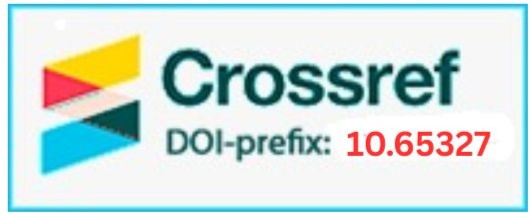Immunobiological drugs in the treatment of rheumatic diseases
DOI:
https://doi.org/10.22141/2307-1257.8.3.2019.176456Keywords:
rheumatic diseases, immunobiological drugs, tumor necrosis factor blockers, interleukin-1, -6, 17A receptor antagonists, CD20, CD80/CD86 blockers, T-cell соstimulation blocker, reviewAbstract
Rheumatic diseases (RD) are among the most common chronic diseases of the musculoskeletal system and connective tissue which are found in both adults and children. The cause of these pathological conditions can be changes in the functioning of the immune system, inflammation, infections and other factors. In some cases, they lead to disability and have a significant impact on the quality of life and lifetime. There are non-pharmacological and pharmacological treatments for RD. The first line (non-pharmacological) treatment of most RDs consists in changing the lifestyle (exercises, correct diet, smoking cessation). Standard pharmacological treatment includes non-steroidal anti-inflammatory drugs, glucocorticoids, anti-inflammatory drugs that suppress acute phase response, help reduce the level of autoantibodies. Unfortunately, although non-steroidal anti-inflammatory drugs help control RD symptoms reducing pain, swelling and inflammation, they do not slow down the disease progression. This also refers to glucocorticoids which are anti-inflammatory hormones associated with cortisol, a steroid produced naturally in the body. Despite their advantages, glucocorticoids have significant side effects including diabetes, osteoporosis, hypertension, cataract and susceptibility to infections. In recent years, new data on the pathogenesis of rheumatic diseases has been obtained that has contributed to the possibility of creating innovative immunobiological drugs. The development of such drugs has revolutionized the therapeutic approach to chronic rheumatic diseases, especially in patients who are resistant to standard treatment. The mechanism of action of these immunobiological drugs is based on the inhibition of specific or molecular targets directly involved in the disease pathogenesis. They include tumor necrosis factor blockers, interleukin-1, -6, 17A receptor antagonists, CD20, CD80/CD86 blockers and T-cell costimulation blocker. Their use allows us to improve the prognosis and achieve clinical remission in a significant number of patients.Downloads
References
Hollander JL, Comroe BI. Arthritis and allied conditions, 4th edn. Philadelphia, PA: Lea & Febiger; 1949.
Zündorf U. Aspirin, 100 Years: The Future Has Just Begun. Leverkusen, Germany: Bayer AG, Consumer Care Business Group; 1997.
Stohl W, Chatham W, Weisman M, Furie R, Weinstein A, Mishra N; LBRA01 Study Group. Belimumab (BmAb), a novel fully human monoclonal antibody to B-lymphocyte stimulator (BLyS), selectively modulates B cell subpopulations and immunoglobulins in a heterogeneous rheumatoid arthritis population. Arthritis Rheum. 2005;52 Suppl:S444.
Dhimolea E. Canakinumab. MAbs. 2010 Jan-Feb;2(1):3-13. doi:10.4161/mabs.2.1.10328.
Cosentyx (secukinumab) highlights of prescribing information. East Hanover (NJ): Novartis Pharmaceuticals Corporation; 2015. Available from: https://www.pharma.us.novartis.com/sites/www.pharma.us.novartis.com/files/cosentyx.pdf.
Downloads
Published
How to Cite
Issue
Section
License
Copyright (c) 2019 O.O. Melnyk

This work is licensed under a Creative Commons Attribution 4.0 International License.

 ISSN 2307-1257
ISSN 2307-1257 ISSN 2307-1265
ISSN 2307-1265



















